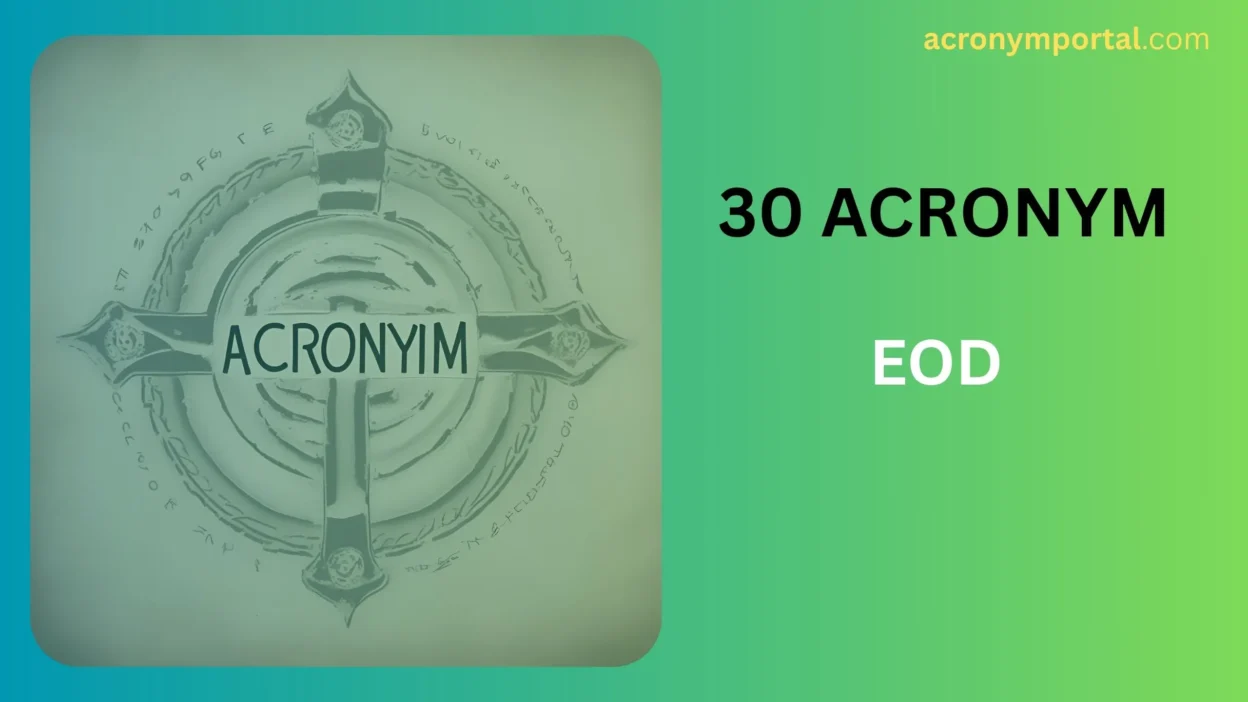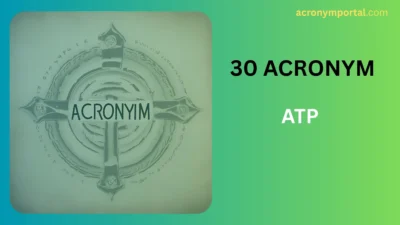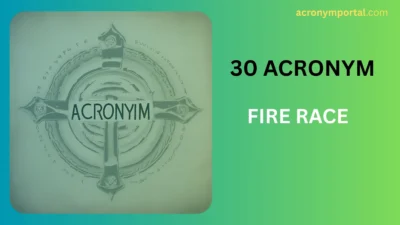The acronym EOD usually stands for “End of Day” in professional communication. It’s a concise way to set deadlines or communicate urgency, like:
📧 “Please send me the report by EOD.”
But just like many workplace acronyms, EOD has developed layers of meaning and tone depending on context. While it primarily refers to time management, it can also subtly imply priority, finality, or expectation—without sounding too harsh.
In this post, we’ll explore 30 powerful alternatives to “EOD” that help you tailor your message more precisely depending on tone, urgency, or formality. You’ll get short definitions, practical examples, and when to use each one so your communication stays clear, courteous, and effective.
🕒 30 Alternatives to “EOD” (End of Day)
1. COB (Close of Business)
Meaning: Business closing time, usually 5–6 PM.
Example: Submit your timesheet by COB today.
Use when: You want a more formal, business-sounding version of EOD.
2. EOB (End of Business)
Meaning: Same as COB, but slightly more modern.
Example: Let me know your availability by EOB tomorrow.
Use when: You need a clear, polite business deadline.
3. By Today
Meaning: Anytime before midnight today.
Example: Please finish the task by today.
Use when: Writing in more casual or non-corporate settings.
4. By Tonight
Meaning: Before the evening ends.
Example: I need your input by tonight.
Use when: Less formal, slightly more conversational.
5. By Close of Play
Meaning: A British equivalent of COB.
Example: We’ll finalize this by close of play Thursday.
Use when: Communicating with UK-based colleagues.
6. Before Midnight
Meaning: Specific cutoff—11:59 PM.
Example: The submission portal will close before midnight.
Use when: You need to be extra precise.
7. ASAP (As Soon As Possible)
Meaning: Urgent, but no exact time.
Example: Please review the draft ASAP.
Use when: Emphasizing urgency over a deadline.
8. No Later Than Today
Meaning: Absolute final deadline is today.
Example: Submit your feedback no later than today.
Use when: You want to emphasize importance without sounding pushy.
9. End of Shift
Meaning: When a work shift concludes.
Example: Wrap up the documentation by end of shift.
Use when: In shift-based or hourly job roles.
10. Before the Day Ends
Meaning: Soft, natural phrasing for EOD.
Example: Let’s get this wrapped before the day ends.
Use when: You want a more human tone.
11. By Close
Meaning: Business closing hours.
Example: Let’s finalize the pricing by close.
Use when: Retail, sales, or store operations.
12. Before COB
Meaning: Slightly softer than COB itself.
Example: Try to send that in before COB.
Use when: When timing is key, but you’re being gentle.
13. By Business Day End
Meaning: Alternative formal variation.
Example: Please update the logs by business day end.
Use when: Formal reports or email chains.
14. Today’s Deadline
Meaning: A task’s due date is today.
Example: This is marked as today’s deadline.
Use when: Clearly defining task due dates.
15. By Day’s End
Meaning: A poetic, professional variation.
Example: We’ll have this done by day’s end.
Use when: Wanting a softer, more stylistic tone.
16. Due Today
Meaning: Task or item is required today.
Example: All invoices are due today.
Use when: Listing deliverables or reminders.
17. By 5 PM
Meaning: Specific time deadline.
Example: Make sure the file is sent by 5 PM.
Use when: Exact cutoff is required.
18. Latest by Today
Meaning: Last possible acceptable time is today.
Example: Let’s get the visuals latest by today.
Use when: You’re offering flexibility—but not tomorrow!
19. Today Itself
Meaning: Today and not a day later.
Example: It’s important we sign off today itself.
Use when: You’re emphasizing same-day action.
20. Before Close of Day
Meaning: A more complete phrase than EOD.
Example: We need approval before close of day.
Use when: Formal or semi-formal updates.
21. End of Working Hours
Meaning: When employees stop working for the day.
Example: Please upload the files by end of working hours.
Use when: HR, staffing, or remote team communication.
22. Within Today
Meaning: Timeframe is strictly limited to today.
Example: We expect a resolution within today.
Use when: Customer service or support.
23. Day-End
Meaning: Synonym for EOD, less common.
Example: Finalize the script by day-end.
Use when: Slightly creative or informal writing.
24. Before Logging Off
Meaning: Before ending work (remote culture).
Example: Send the updates before logging off.
Use when: Casual team messages or Slack.
25. Tonight’s Deadline
Meaning: Task due specifically tonight.
Example: The write-up is tonight’s deadline.
Use when: Distinguishing from day deadlines.
26. Today’s Cutoff
Meaning: Final submission time today.
Example: That’s today’s cutoff for submissions.
Use when: Policies, contests, or timed actions.
27. Wrap by Today
Meaning: Complete task within the day.
Example: Let’s wrap the checklist by today.
Use when: Project management or tracking tasks.
28. Finish Today
Meaning: Strong, simple phrase.
Example: Please finish today, not tomorrow.
Use when: Emphasis without being formal.
29. Send Today
Meaning: Instruction to dispatch something today.
Example: Can you send the package today?
Use when: Logistics or email follow-up.
30. Today, Please
Meaning: Friendly nudge to meet deadline.
Example: Today, please—if you can!
Use when: Polite reminders without pressure.
🧭 Choosing the Right Alternative: Context Matters
Here’s how to make your choice wisely:
| Tone | Best Options |
| Formal | COB, EOB, Before COB, End of Business, By 5 PM |
| Polite & Soft | By day’s end, Today please, Wrap by today |
| Casual | Finish today, Send today, Before logging off |
| Precise & Clear | Before midnight, No later than today, Today’s cutoff |
| Global Audience | Close of Play (UK), End of Working Hours, Within today |
Also, think about urgency vs. flexibility. “ASAP” sounds immediate but vague, while “Before 5 PM” is specific but stricter.
✅ Conclusion
Using “EOD” is simple and effective, but exploring alternatives can elevate your communication, especially when tone and clarity matter. Whether you’re managing a team, emailing a client, or organizing your own deadlines, the right word sets the right expectation.
Start small—swap one EOD with a clearer or softer phrase—and see how it changes your results.




